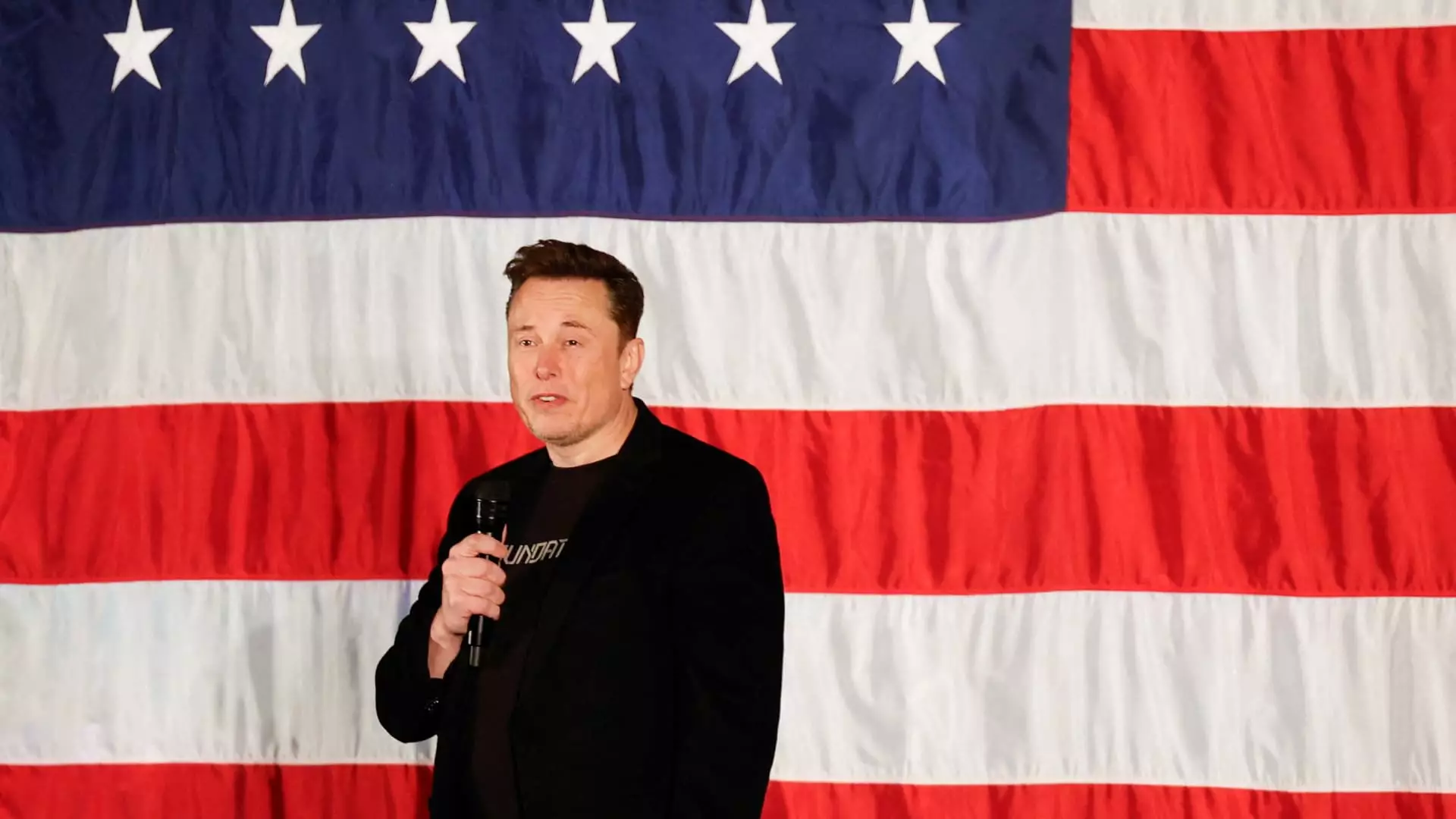In a dramatic turn of events, a federal judge in Pennsylvania recently returned a high-profile lawsuit involving billionaire Elon Musk and his political action committee, America PAC, back to state court. This case revolves around an ambitious initiative led by Musk to award registered voters $1 million daily as part of a lottery intended to boost voter engagement and influence in the upcoming presidential election. However, the underlying legal controversies surrounding this giveaway raise significant questions about electoral integrity, legality, and ethical boundaries in political campaigning.
Musk’s initiative, which started on October 19, was positioned as a daily giveaway aimed at engaging voters in crucial swing states—including Pennsylvania—in support of constitutional values. However, local authorities, particularly Philadelphia District Attorney Larry Krasner, have raised eyebrows, alleging that this operation constitutes an illegal lottery and a method of voter manipulation as the nation braces for the presidential race between incumbent Donald Trump and Vice President Kamala Harris.
Krasner’s lawsuit underscores the legal tension between innovative fundraising efforts by political entities and existing regulations intended to protect the integrity of the electoral process. By framing the initiative as a lottery, Krasner argues that it violates state consumer protection laws, effectively questioning the legality of Musk’s ambitious scheme.
U.S. District Judge Gerald Pappert’s decision to return the case to state court highlights the complex relationship between federal and state jurisdictions, particularly in politically charged contexts. Pappert’s ruling indicates that the lawsuit does not present any substantial questions of federal law that would mandate its handling in a federal court, dismissing assertions by Musk’s legal team that their case warranted a different forum due to the ties to a presidential election. This legal maneuvering reflects an attempt by Musk and his team to navigate around state laws that may pose barriers to the continuation of the lottery.
The judge’s ruling reinstates the lawsuit in the Philadelphia County Court of Common Pleas, thereby enabling the District Attorney to pursue an expedited injunction against Musk’s ongoing lottery initiative. This reinstatement demonstrates the power of local legal frameworks to address perceived electoral malpractices, suggesting that while Musk’s intentions may be to invigorate the voting process, the methods employed raise serious legal and ethical considerations.
Implications for Political Donations and Voter Engagement
Musk’s actions could set a dangerous precedent in how political entities engage with voters. The concept of awarding money to voters directly, albeit framed as a promotional and engagement strategy, could blur the lines between encouraging civic participation and outright purchase of electoral influence. As the lawsuit unfolds, it raises critical questions about the role of financial incentives in democratic processes.
Moreover, Krasner’s swift legal response illustrates a growing trend among public officials to scrutinize unconventional campaign strategies that may threaten the integrity of the electoral system. This case not only focuses on Musk but also sets a broader context for examining how wealthy individuals and groups channel their resources into political activities—an issue that resonates deeply in today’s political climate where financial power often translates into political influence.
As we observe the complex proceedings of this case, its implications extend beyond the immediate legal realm and into the heart of democracy itself. This lawsuit acts as a microcosm for the ongoing debates surrounding voter influence, campaign finance, and the ethical dimensions of political engagement. With billions of dollars poured into elections annually, the question remains: at what point does civic engagement transform into coercive influence?
As the legal processes unfold in Pennsylvania courtrooms, the ramifications of Musk’s initiative—and local authorities’ resistance to it—will likely resonate across the United States, prompting reflection on the standards of legality and ethics that govern electoral processes. Ultimately, it stands as a reminder of the thin line that exists between encouraging voter participation and risking the integrity of democratic elections. The ongoing case invites stakeholders at all levels to critically examine and define the principles governing electoral engagement in an era where unconventional tactics may dominate the political landscape.


Leave a Reply